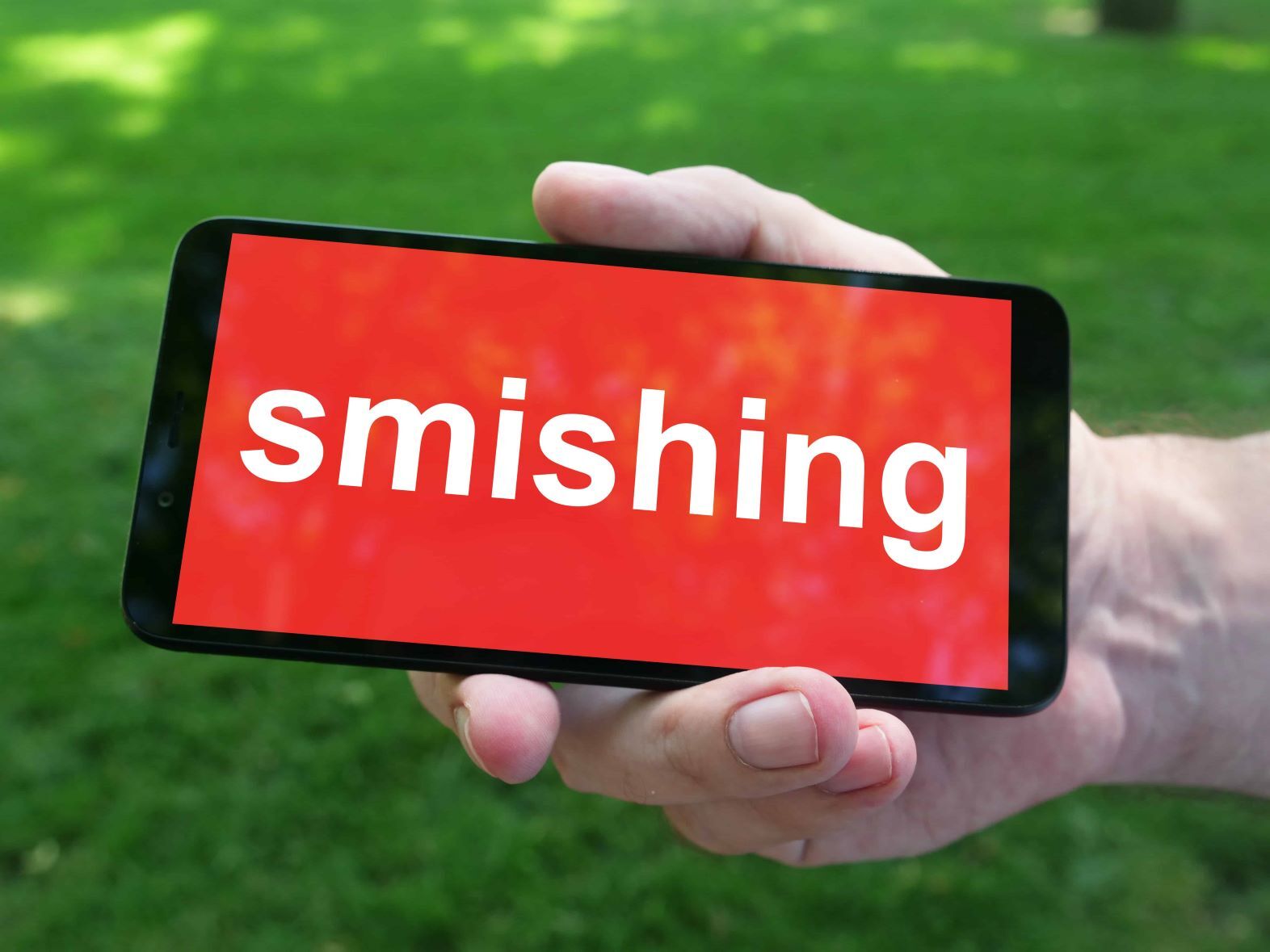What is Smishing? A Complete Guide

What is Smishing? A Complete Guide Malicious actors are using Smishing techniques to disguise themselves as reputable companies. Get a Quote Download Datasheet Phishing > Smishing What is Smishing? A Complete Guide Smishing is a type of phishing cybercrime where mobile text messages are used as bait. Also called SMS phishing, hackers use mobile SMS to disguise themselves as reputable companies, then trick the user into sharing personal information like passwords and credit card numbers. By Cian Fitzpatrick | May 29, 2023 Smishing is similar to phishing, with the only difference being that smishing uses mobile phone SMS and phishing uses email attachments. Cybercriminals deceive the targeted victim by sending an attractive text. The compelling message tempts the victim to click the link sent by the scammer. That link either shares private information from the target’s smartphone or instals malicious software inside the victim’s phone. How does Smishing Work? Cybercriminals send a mobile text message in the name of someone credible about a lucrative offer. The compelling message realistically impersonates a reputable organisation and lures the victim to comply and follow the hacker’s instructions. The hackers send you a malicious link as part of the process. Once downloaded on users’ phones, the link fetches the user’s personal information, like passwords and credit card numbers. Sometimes, the link is also used for ransomware attempts. Once the hackers get access to your phone, they might hold the confidential information inside that phone as ransom. Types of Smishing Attacks Smishing attacks come in different, misleading forms. These targeted attacks aim to trick users into believing that the SMS text is sent from a reliable source. The decoy sounds realistic and tempting for normal users, luring them into the trap. Below are a few examples of the most recurring smishing attacks: COVID-19 Smishing Hackers use smishing techniques to catch users off guard and in their most vulnerable situations. Covid-19 Smishing occurred during the desperate coronavirus outbreak of 2019. The pandemic created a chaotic environment for everyone, and the concerned health or government authorities were desperate to pass and receive communications. The distressing environment was such that people consequently followed any instructions that seemed logical and valid. Hackers used the vulnerable situation and sent SMS messages in the names of government health officials, asking to download links for surveys or breaking news. Gift Smishing Gift smishing is yet another prominent smishing trick. It comes in the form of free offers of services or products from popular stores or trusted companies. These offers could be in the form of contest prizes, shopping rewards, or other attractive giveaways. Hackers take advantage of the idea of getting something for free to make you act quickly without thinking. They might create a sense of urgency by giving you a limited response time or claiming that you’ve been specially chosen for a free gift card. Financial Services Smishing Smishing scams also involve sending fake messages resembling notifications from banks or financial institutions. These messages deceive people using banking and credit card services, whether generic or targeted to a specific institution. These smishing attacks frequently include scams related to loans and investments. The attackers pose as a bank or financial institution to gain trust but aim to commit financial fraud. Warning signs of a smishing scam in the financial services category include urgent requests to unlock your account or verify suspicious account activity. Customer Support Smishing A support-based smishing scam includes receiving messages about billing problems, difficulties accessing your account, unusual activity on your account, or promises to address a recent customer complaint. The scammers impersonate helpful representatives from reputable companies like Apple, Google, or Amazon and claim an issue with your account. They provide instructions to resolve it, which are as simple as clicking on a fake login page or as complex as providing a genuine account recovery code to reset your password. Invoice and Order Confirmation Smishing Confirmation smishing scams users with fake confirmations for a recent purchase or bill related to a service. The scammers might send a link to make you curious or anxious about potential charges, pushing you to act quickly. Avoid Falling Into Smishing Traps. Contact Topsec today to secure your valuable information Click Here Statistics on the Number of People Affected by Smishing Attacks Consumer Reports states that the FTC logged 378,119 complaints in 2021 related to fraudulent activities through unwanted text messages, including smishing attempts. This represents a higher number than the 332,000 complaints received in 2020, indicating increased unwanted texts and smishing incidents. According to a CNET report in 2020, Smishing made up a significant portion of reported fraud cases, representing 21% of all instances. According to KCRA, in 2021, out of the total 87.8 billion scam texts sent, more than 5.6 billion were spam texts that falsely claimed to offer free COVID-19 tests. According to Robokiller’s 2022 Insights & Analysis, cybercriminals who engaged in smishing successfully stole an alarming $20.6 billion (USD) from Americans in 2022. This amount reflects a substantial 105% increase compared to the $10 billion reported in the previous year, underscoring the growing magnitude of the issue. OpSec Security reports that in 2020, smishing scams led to Americans losing more than $50 million (USD), as stated by the FBI. Moreover, there was a remarkable 700% surge in the number of scam text messages reported to authorities during the first half of 2021. According to the Office for National Statistics (ONS), adults between the ages of 25 and 44 are the most susceptible to receiving Smishing. According to Robokiller’s 2022 Insights & Analysis, cybercriminals who engaged in smishing successfully stole an alarming $20.6 billion (USD) from Americans in 2022. AARP highlights that smishing fraud plays a significant role in its impact on mental health. Individuals targeted by any type of fraud often face various mental health difficulties. Specifically, victims of smishing schemes commonly encounter negative emotions, sleep disorders, post-traumatic stress disorder (PTSD), and depression, underscoring the expected consequences of such incidents.

